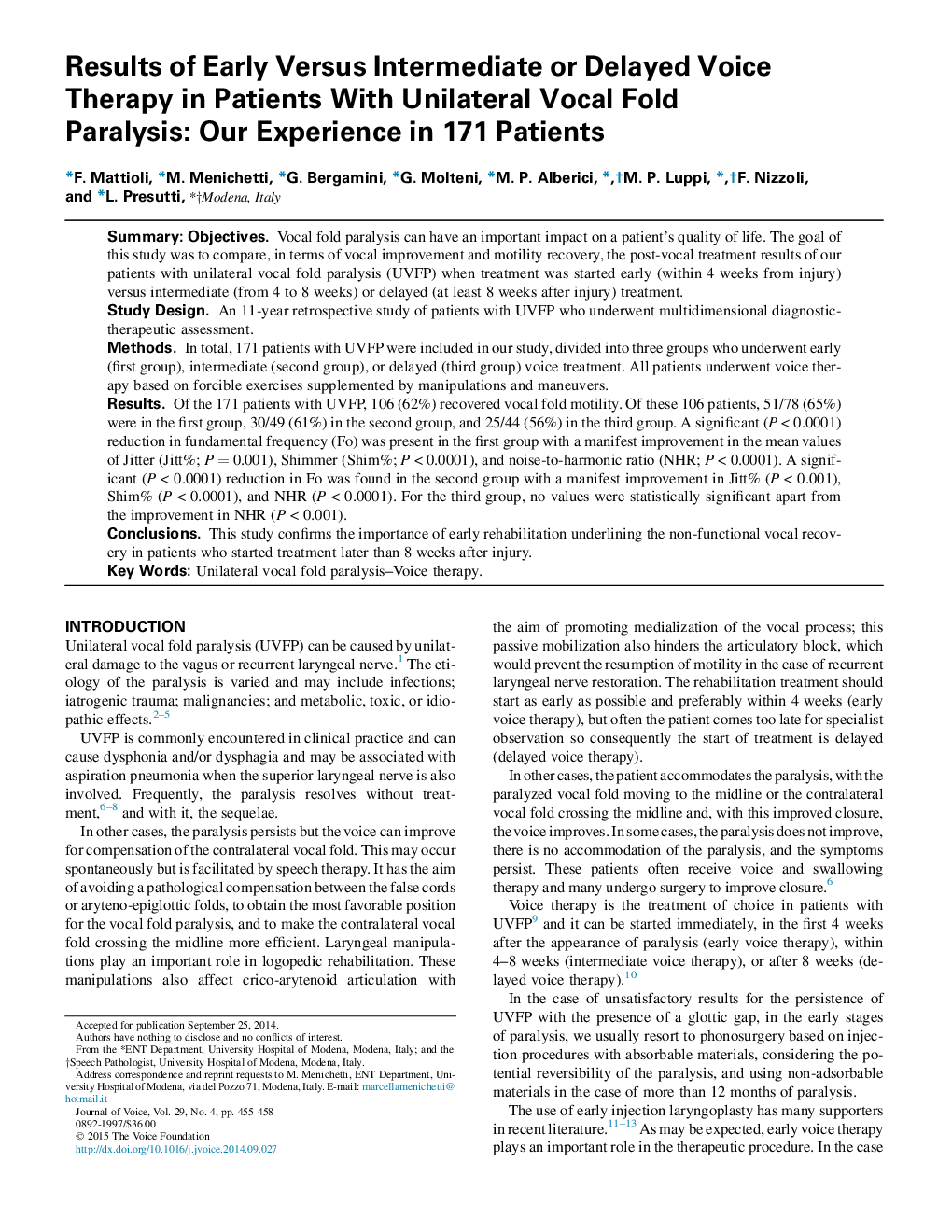| Article ID | Journal | Published Year | Pages | File Type |
|---|---|---|---|---|
| 1101475 | Journal of Voice | 2015 | 4 Pages |
SummaryObjectivesVocal fold paralysis can have an important impact on a patient's quality of life. The goal of this study was to compare, in terms of vocal improvement and motility recovery, the post-vocal treatment results of our patients with unilateral vocal fold paralysis (UVFP) when treatment was started early (within 4 weeks from injury) versus intermediate (from 4 to 8 weeks) or delayed (at least 8 weeks after injury) treatment.Study DesignAn 11-year retrospective study of patients with UVFP who underwent multidimensional diagnostic-therapeutic assessment.MethodsIn total, 171 patients with UVFP were included in our study, divided into three groups who underwent early (first group), intermediate (second group), or delayed (third group) voice treatment. All patients underwent voice therapy based on forcible exercises supplemented by manipulations and maneuvers.ResultsOf the 171 patients with UVFP, 106 (62%) recovered vocal fold motility. Of these 106 patients, 51/78 (65%) were in the first group, 30/49 (61%) in the second group, and 25/44 (56%) in the third group. A significant (P < 0.0001) reduction in fundamental frequency (Fo) was present in the first group with a manifest improvement in the mean values of Jitter (Jitt%; P = 0.001), Shimmer (Shim%; P < 0.0001), and noise-to-harmonic ratio (NHR; P < 0.0001). A significant (P < 0.0001) reduction in Fo was found in the second group with a manifest improvement in Jitt% (P < 0.001), Shim% (P < 0.0001), and NHR (P < 0.0001). For the third group, no values were statistically significant apart from the improvement in NHR (P < 0.001).ConclusionsThis study confirms the importance of early rehabilitation underlining the non-functional vocal recovery in patients who started treatment later than 8 weeks after injury.
